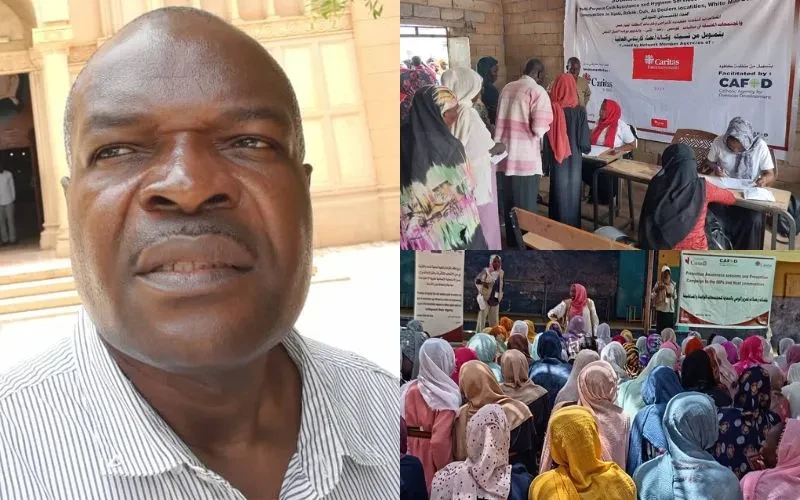ACI Africa, Aug 26, 2025 /
14:23 pm
The current cholera devastation in Sudan, especially in the country’s Darfur region, is taking a toll on the population already battered by the world’s worst humanitarian crisis following two years of heavy fighting between the Rapid Support Forces (RSF) and the Sudanese Armed Forces (SAF).
From Tawila in north Darfur where there is still heavy fighting, to relatively calmer regions such as Kosti in the White Nile, Sudan’s worst cholera outbreak is exacerbating the country’s humanitarian crisis.
According to ACI Africa, CNA’s news partner in Africa, the fighting started in Sudan’s capital city, Khartoum, before becoming a full-fledged civil war in the entire northeastern African nation. It has reportedly resulted in the deaths of “as many as 150,000 people”; well over 14 million people have been displaced, including to unstable countries such as Chad, Ethiopia, and South Sudan, where they have reportedly overrun refugee camps.
The cholera outbreak was declared by Sudan’s Ministry of Health on Aug. 12, 2024, and since then 99,700 cases have been reported and more than 2,470 related deaths (as of Aug. 11, 2025). In the Darfur region alone, Médecins Sans Frontières (MSF) teams have treated over 2,300 patients and recorded 40 deaths in the week that ended on Aug. 12.

According to MSF, the situation is most extreme in Tawila, where 380,000 people have reportedly fled to escape ongoing fighting around the city of El Fasher.
In El Fasher, and in many other parts where fighting has been heaviest, infrastructure has been destroyed, making it impossible to pump water from the source to the people. The war has also blocked aid related to hygiene, further exacerbating the cholera crisis.
At the heart of intervention in this crisis, and navigating a dangerous terrain with a “skeletal manpower,” is the Catholic Agency for Overseas Development (CAFOD), which is innovating every day to find ways to deliver water, medicine, and different forms of aid to the people.
Where power plants have been destroyed, CAFOD, which is the official aid agency for the Catholic Church in England and Wales, is transporting water manually using trucks from the source to distribution points near the people, especially in camps for those internally displaced.
In places where access is impossible for humanitarian organizations, CAFOD is working closely with the Federal Ministry of Health and with local leaders, supporting them with what they need because their challenge is lack of resources.
ACI Africa recently spoke to Telley Sadia, CAFOD’s Country Representative for Sudan about the situation in north Darfur and the challenges CAFOD, which has maintained a presence in the country since the 1970s, faces in their work there.
“This is one of the biggest humanitarian situations in the world which, unfortunately, has not received much international press. Sudan is not heard,” the Ugandan-born CAFOD official said.
Sadia, who has worked in Sudan for many years, echoed the sentiments of CAFOD’s executive director, Christine Allen, who told ACI Africa on Aug. 2 that in the U.K., “trying to get coverage on the media or political interest in Sudan has just been almost impossible.”
Sadia appealed to journalists, saying: “My message is to the media: Sudan needs a voice. I look forward to the day when the world will be made aware of what is actually happening in this country.”
This story was first published by ACI Africa, CNA’s news partner in Africa, and has been adapted by CNA.


